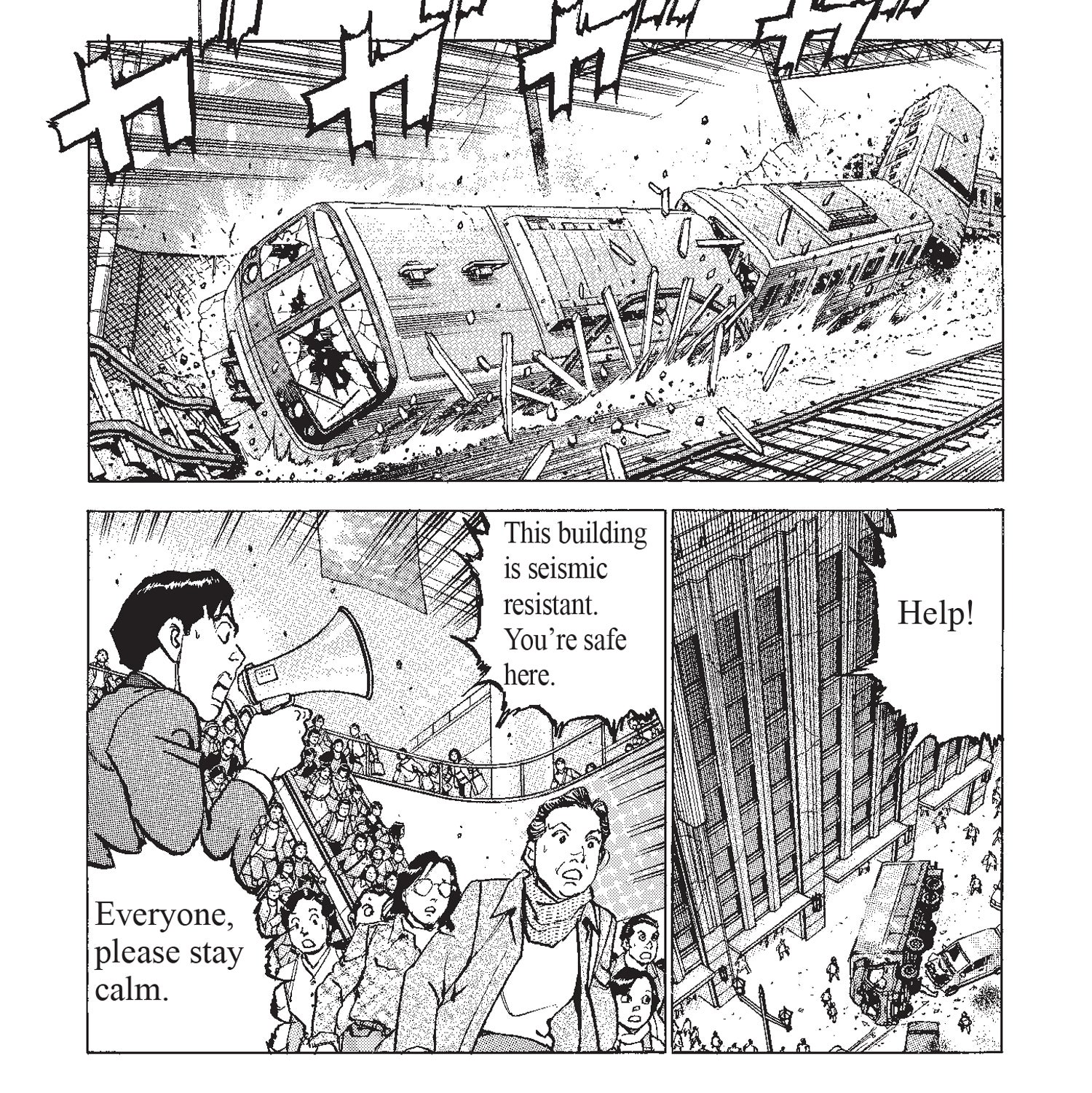There’s a 70 percent chance a major earthquake will directly strike Tokyo in the next 30 years. With over 13 million residents who speak many different languages facing threats ranging from falling debris to stampeding crowds to freezing weather,��communicating��preparedness guidelines that’re��simple to follow, wide ranging and, most importantly, effective is a huge undertaking. But, with its new Disaster Preparedness Guide, the Tokyo Metropolitan Government has achieved that.��
Unlike most survival manuals, this guide provides��realistic advice for real people in plausible situations. It won’t teach you how to catch a moose in a deadfall trap if you happen to find yourself stranded in the arctic with only a bobby pin and a bad attitude, but it will show you how to use newspapers for warmth, make a stove out of soda cans, or splint a broken limb with plastic wrap. And it covers situations faced across the world—stuff like torrential rain, mud slides, terrorist attacks, and even the outbreak of infectious disease.��Released late last year, the guide is being distributed free to citizens and has also been made available online. You can��. Bonus:��it includes a��manga-style��comic.
Here’s what it can teach you about survival, no matter where you live.
Cover Your Head
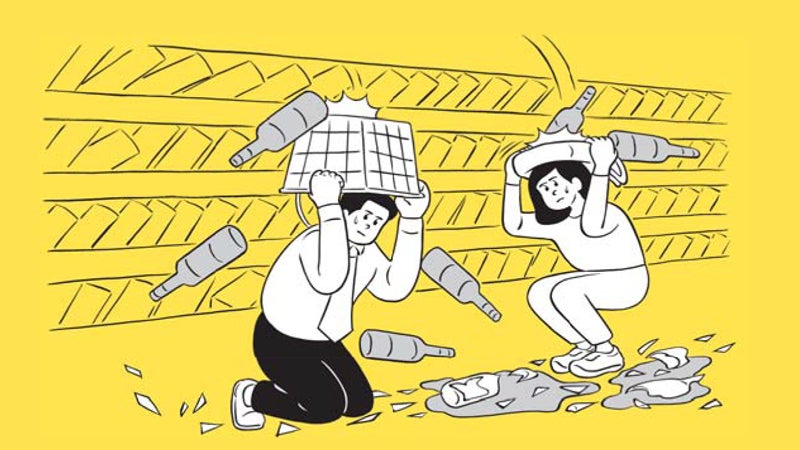
Throughout the guide, you’ll find illustrations of people holding bags, buckets, jackets, and even duvets over their heads. You don’t wear a helmet to bed or in the office, but in an earthquake or other disaster, falling objects become as much a risk to a city dweller��as they are to a rock climber on the wall. Improvising head protection with anything you have on hand is a great idea.
The Importance of Planning

You’ll find similar advice in any worthwhile survival guide. But it’s worth repeating because it’s so important. You need to have and know how to use potentially life saving equipment like fire extinguishers,��stockpile food, water, and other supplies, and develop a plan about where to meet family members should you be apart. Tokyo’s guide is unique in terms of the level of detail it delves into. It provides��guidance on��securing��furniture and other items inside your home and gives a detailed checklist of supplies to stockpile for a typical family, both at home and in a “go” bag.
Perhaps most interesting is the advice on division of duties for families. I hadn’t seen this kind of thing before, but it��makes total sense. Through pre-planning, families are encouraged to designate someone to perform vital tasks immediately, such at tackling a fire or securing an exit. This ensures that there’s a plan in place for these immediate needs to be handled right away, amid confusion and fear.��
Stockpiling Supplies, Daily
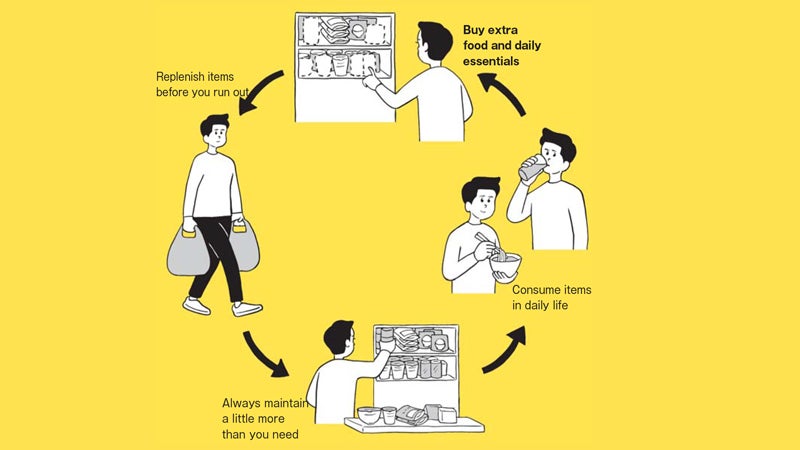
When I moved into my current house in also earthquake-prone Los Angeles, one of my first priorities was stockpiling water, food, sanitation stuff, and other emergency supplies. It was expensive and took a few days of dedicated work. The guide has better advice:
Until now, it was thought that stockpiling emergency supplies was special and involved preparing items not normally used such as ship biscuits and flashlight headbands. As such, there are probably many people who gave up, believing that managing and maintaining a stockpile was difficult. However, the “daily stockpile” method allows you to easily create an emergency stash just by buying a little more of the food and essentials that you normally use on a daily basis.��If you live alone and often shop at convenience stores, you probably don’t have a week’s supply of food in your refrigerator. Try purchasing a little more of your favorite items such as instant noodles, heat-and-eat food, snacks, and beer at the convenience store to build up your stock.
The approach that Tokyo recommends is almost a 180-degree turn, in that it simply advises��adding a little extra to your routine shopping.��Hundreds of dollars in long-shelf-life food may seem an unnecessary burden on many people, but buying a couple extra packages of the staple food you consume already to your weekly shopping is both low-cost and low-effort. Rotating it ensures it doesn’t expire. And who can’t get behind a practical reason to buy more beer?
Stay Warm And Safe with Trash
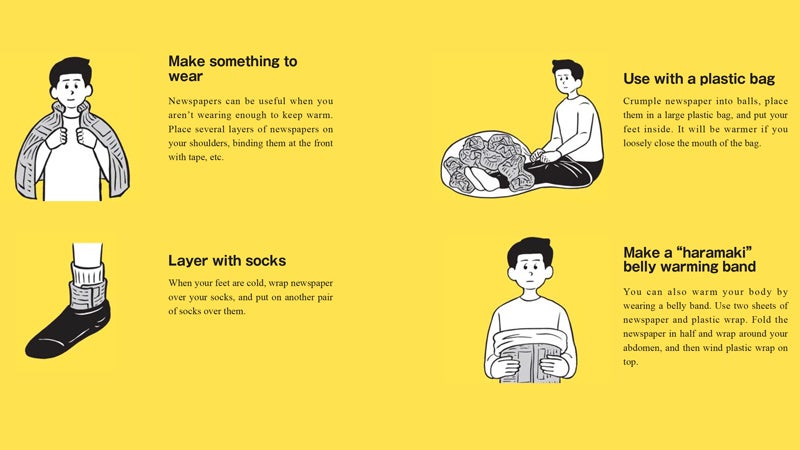
Hey, it works. Shoving wadded up newspaper inside a jacket or other outerwear is one of the easiest ways to create trapped air space from found items. And trapped air space is insulation. As the��guide��notes, bubble wrap, aluminum foil, cardboard, and Styrofoam can work too. The last two are most effective for creating a buffer between��you��and the cold ground at night. And, the guide has further advice:
In the event of a disaster, avoiding injury is critical. A disaster-stricken area may be strewn with rubble and��puddles of water, and might��be harder to walk through than you can imagine. In order to avoid injury from��stepping on stray��nails and other sharp materials, you should learn in advance how to protect your feet.��The guide recommends placing something hard and penetration-resistant, like a wooden board, under your shoes, and tying or wrapping it on with string, tape, or plastic wrap.
Kill Flies
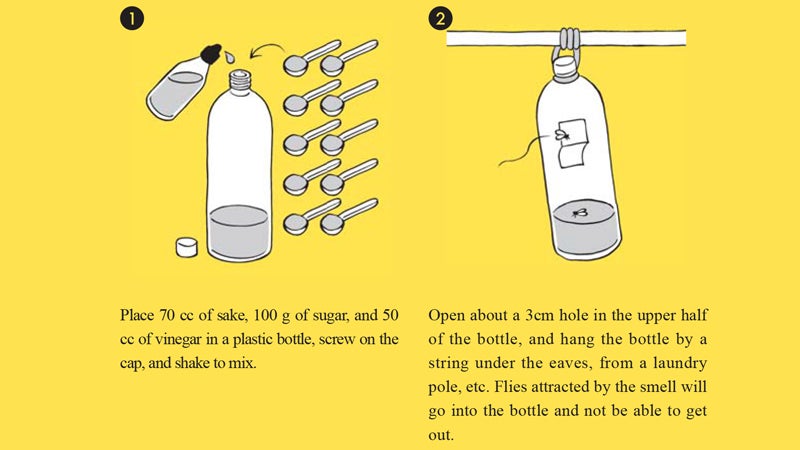
They spread disease! Sanitation is one of the oft-overlooked practicalities about realistic survival. This should work as well everyday as it will in a disaster. Our takeaway? Stockpile sake.��
Change the Size of a��Battery
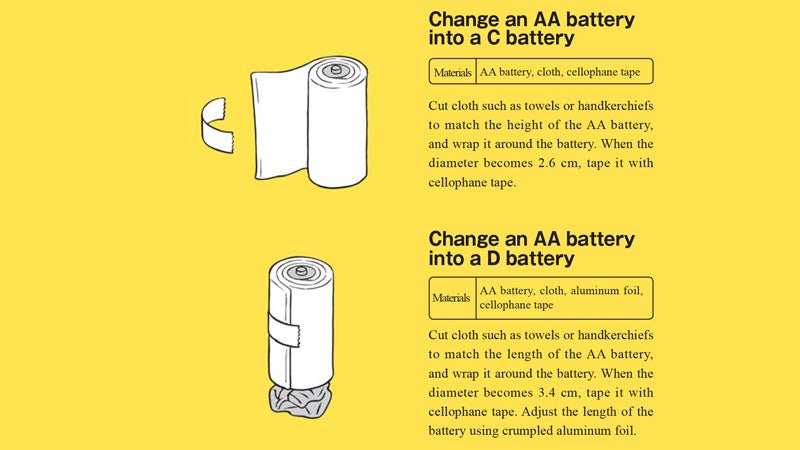
You’re going to need flashlights and battery operated radios, maybe even other battery-powered��devices. You can’t make a big battery smaller, but you can make a small battery bigger.��To change a AA into a D,��match the length of the AA with a non-conductive material to a diameter of 3.4cm (1 1/3-inch), then add length to the battery by crumpling aluminum foil and placing it underneath.��
Fry Fish
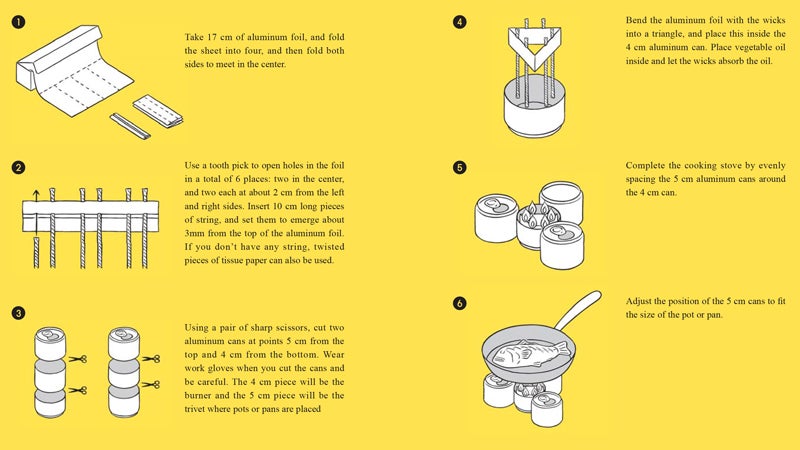
You know, if you have fish and you're hungry.��The guide shows you how to construct a stove from soda cans, fueled by vegetable oil. In a pinch, you can use a simple filled with denatured alcohol or kerosene.
Make a��Backpack
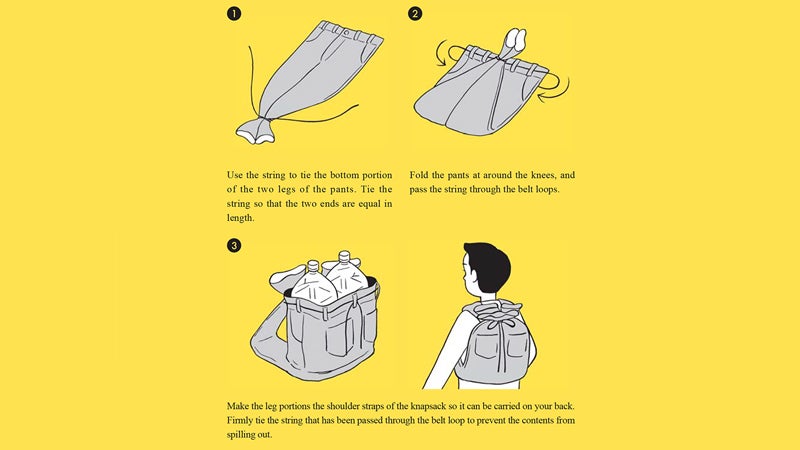
Need to carry jugs of water��or other heavy objects over distance? All you need is the��pair of pants you're wearing,��and some string.��
Return to Normal Life
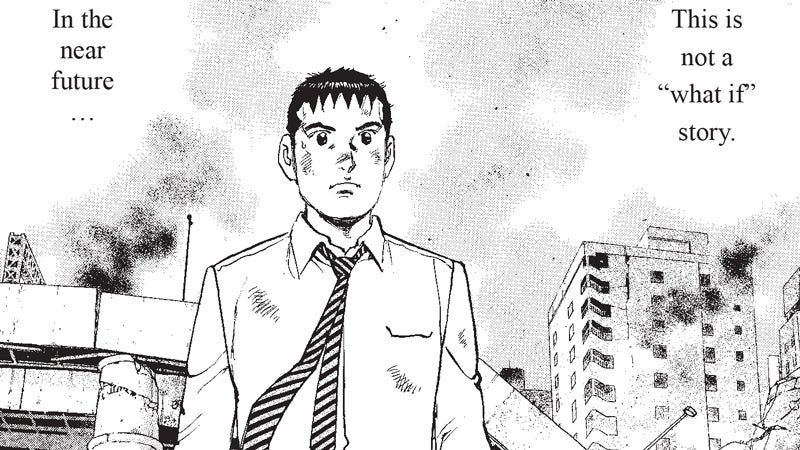
Uniquely, the guide��includes specifics on filing insurance claims, applying for jobs, obtaining damage assessments, and asking for loans. I’m not aware of any other city, region, or country that does that with such specificity, but this at least highlights the need to learn about the requirements for��an insurance claim��ahead of time and to secure the necessary documentation in a safe or go bag. At the very minimum, you should have copies of IDs and passports, bank details, insurance certificates, and photo documentation of more expensive items like works of art, vehicles, and jewelry.��


